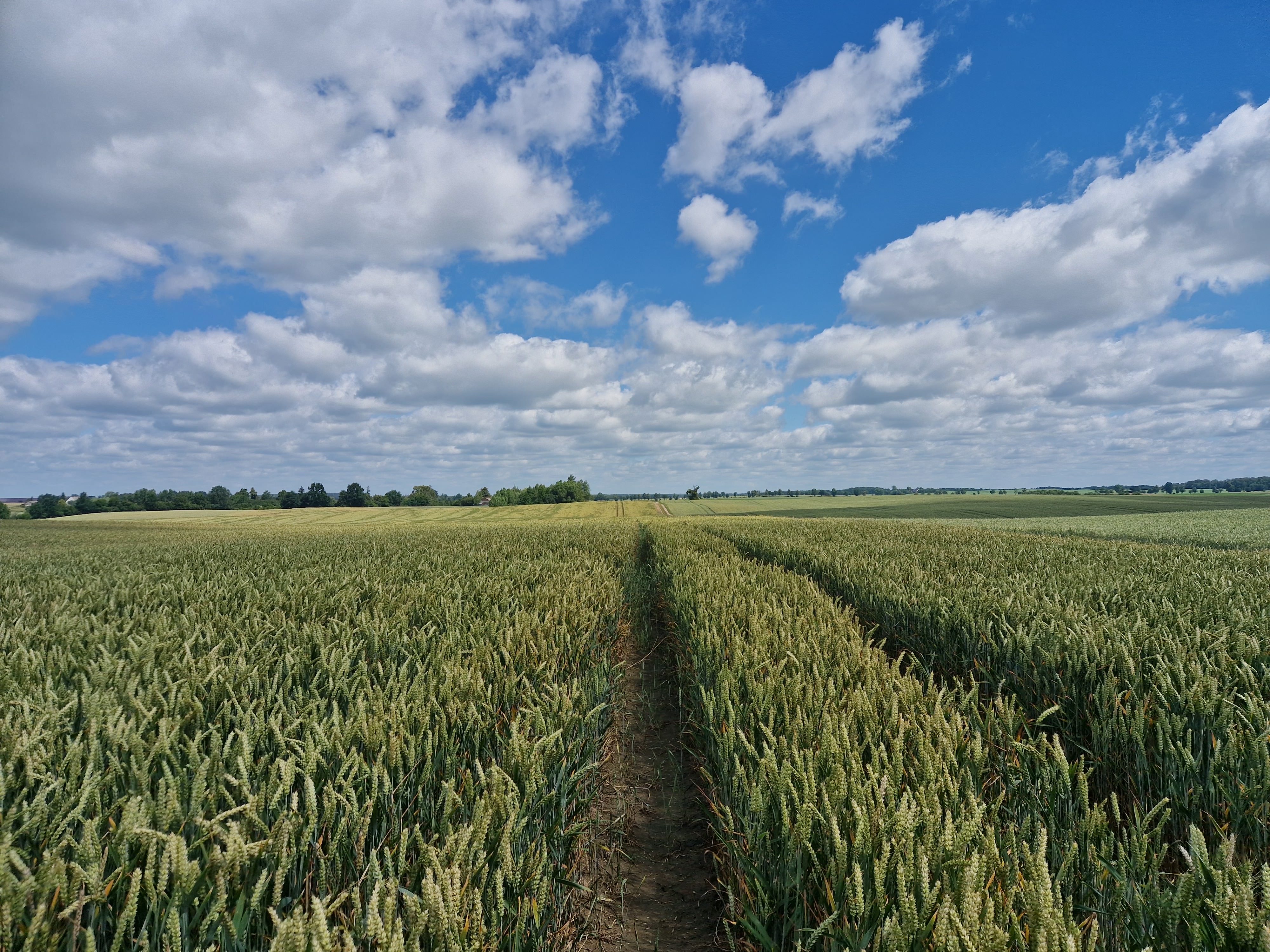The urgency of fighting climate change has led to a surge in business interest in carbon credits, driven by public opinion, pressure from clients, and the need to take concrete steps towards sustainability. The HeavyFinance expert in decarbonisation and sustainability, Violeta Gevorkjan, believes that wider carbon credit initiatives in agriculture could transform the sector from being responsible for up to 30% of global greenhouse gas emissions to one that is climate positive.
Carbon credits, also know as carbon certificates, offer a way to incentivise farmers to adopt sustainable land management practices that increase the amount of carbon stored or sequestered underground. By generating soil carbon credits, farmers are already being drawn towards sustainable agricultural practices like no-till farming, maintaining ground cover through cover cropping, preventing overgrazing, and limiting the use of fertilisers. This shift towards sustainable agriculture practices has the potential to make a significant impact on the fight against climate change.
Firstly, can you explain how carbon certificates are generated?
Violeta: The concept of carbon certificates might sound complicated, but the idea is actually pretty simple. It all starts with carbon farmers who use regenerative farming techniques. These practices enhance soil health and increase the amount of carbon stored in the soil. This can be achieved through a variety of practices, such as reducing tillage, planting cover crops, or rotating crops. Most importantly, these farming practices ensure the carbon remains in the soil and isn’t leaked back into the atmosphere. When these practices are implemented, the amount of carbon in the soil increases, which can be quantified and verified through soil sampling and analysis.
The idea is to remove excess CO2 from the atmosphere and quantify the amount of how many tonnes that were removed by the plants and stored in the soil. By taking the soil samples, we can identify and calculate the amount of carbon. It is very important to store it in the soil permanently!
Using robust accounting, the results of emission reduction can be certified. 1 tonne of removed CO2 generates 1 Carbon Certificate.
Once the carbon has been stored, the farmer can get something called a carbon certificate, which represents the amount of carbon they’ve stored. These certificates are like a tradable commodity that companies and individuals can buy to offset their own carbon emissions or meet sustainability goals. Each certificate represents one metric ton of carbon dioxide equivalent that’s been removed or avoided. So, it’s a win-win situation: the farmers get paid for their hard work, and the buyers get to reduce their carbon footprint.
How does HeavyFinance ensure that the carbon credits generated through its projects are accurately measured, verified and of highest value?
Violeta: Ensuring the accuracy and verification of the carbon credits generated through our projects is of utmost importance to us. Our international team of experts has established an implementation of practices and result monitoring system that includes regular soil sampling, ensuring compliance with the Verra Verification Standard, as well as providing personalised advice to our farmers on how to improve their soil health and sequester more carbon. Our scientific approach to soil management and carbon measurement ensures that our investors can trust the quality of the carbon credits generated, and our commitment to transparency and accountability means that we are continuously striving to improve our processes.
Can you tell us more about HeavyFinance’s approach to sustainability. How is the company contributing to the global fight against climate change?
Violeta: At HeavyFinance, we are fully committed to contributing to the targets of the Paris Agreement. Our approach to sustainability revolves around two main pillars: supporting sustainable agriculture, and reducing greenhouse gas emissions. Through our Green Loans program, we offer financing to farmers who are adopting sustainable practices such as zero-tillage farming, crop rotation, and agroforestry. These practices help sequester carbon in the soil and reduce emissions from fertilisers and machinery.
Our Carbon Farming program also plays a crucial role in our sustainability efforts. By incentivising farmers to sequester carbon in their soil and generate carbon certificates, we are creating a new revenue stream for sustainable agriculture while also contributing to the voluntary carbon market. This market, which is driven by supply and demand, rewards carbon certificates that meet the highest quality standards. HeavyFinance is committed to ensuring that our carbon certificates meet these standards and are recognised as high-quality, verified emission reductions.
Our climate goals align with several of the United Nations Sustainable Development Goals (SDGs), including SDG 6 (Clean Water and Sanitation), SDG 8 decent work and economic growth, SDG 12 (Responsible Consumption and Production), and SDG 13 (Climate Action) SDG15 (Life on land). Additionally, we follow Environmental, Social, and Governance (ESG) principles in our operations and investment decisions, ensuring that our activities have a positive impact on the environment and society.
Ultimately, our goal is to remove 1 gigaton of CO2 from the atmosphere by 2050, and our Green Loans and Carbon Farming programs are essential to achieving this. We believe that sustainable agriculture and carbon sequestration are critical components of a low-carbon future, and we are proud to support these efforts through our financing and expertise.
Finally, how do you see the future of carbon farming and the voluntary carbon market evolving in the coming years, and how is HeavyFinance positioning itself to stay ahead of the curve?
Violeta: To achieve net-zero emissions, it is essential to deploy a range of mechanisms to avoid and remove CO2 from the atmosphere. Agriculture plays a significant role in this effort as a nature-based solution. The exponential growth of the voluntary carbon market provides corporations with an essential tool to offset residual emissions, and the future of carbon farming is vital in removing CO2 from the atmosphere, ensuring the resilience and stability of the food supply chain, and preserving biodiversity and ecosystems. As more governments and corporations commit to achieving net-zero emissions, the demand for carbon certificates is expected to rise significantly, providing farmers with an opportunity to generate additional revenue.
At HeavyFinance, we are committed to staying ahead of the curve by developing innovative financing models, leveraging the latest technologies, and collaborating with international organizations to ensure our projects align with global sustainability goals. Our goal is to scale up our impact and accelerate the transformation of agriculture into a more sustainable and climate-friendly sector while creating value for our investors and farmers. With the future of the planet at stake, we believe that it is essential to invest in sustainable and innovative solutions that benefit both the environment and the economy.



